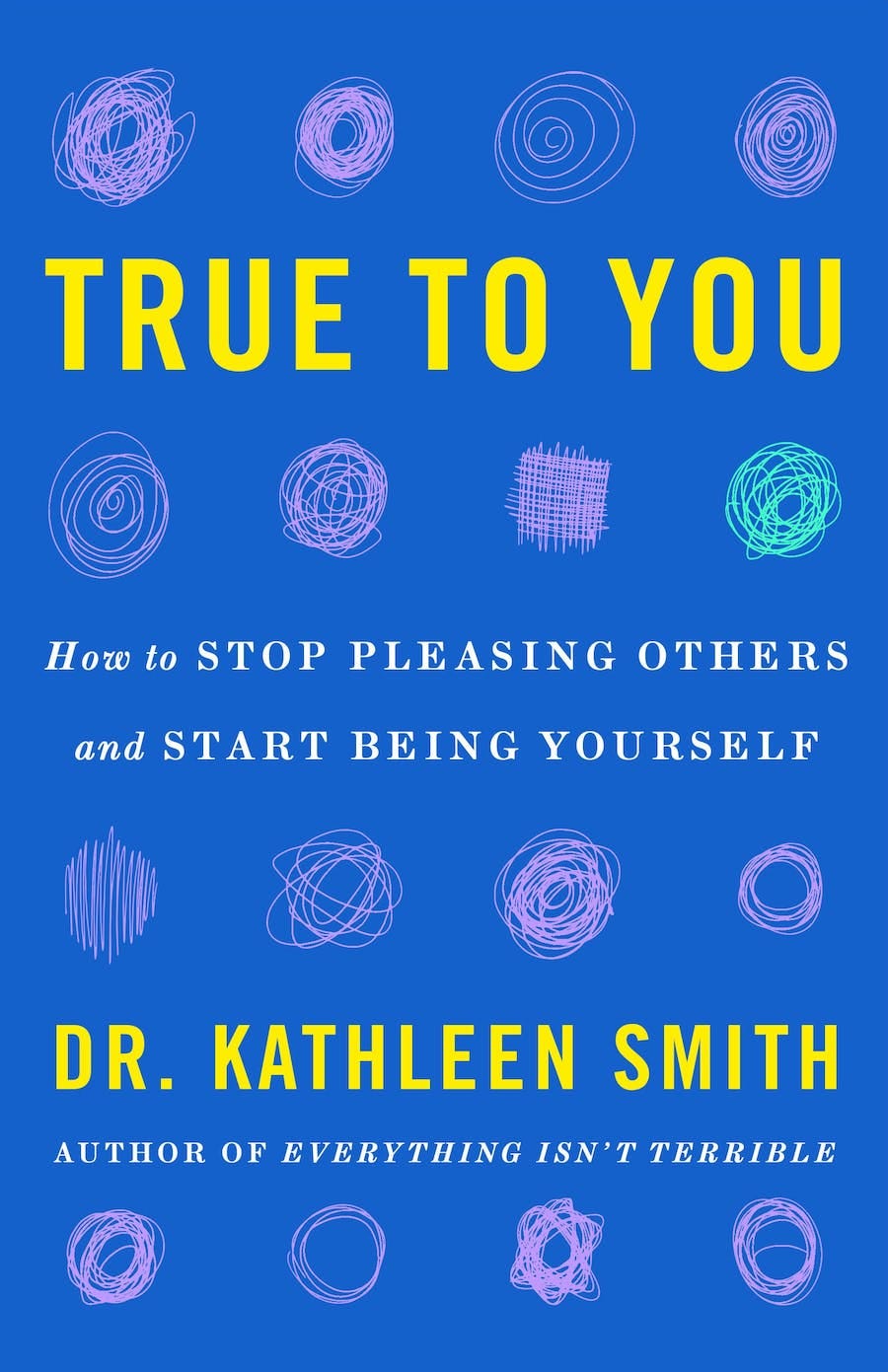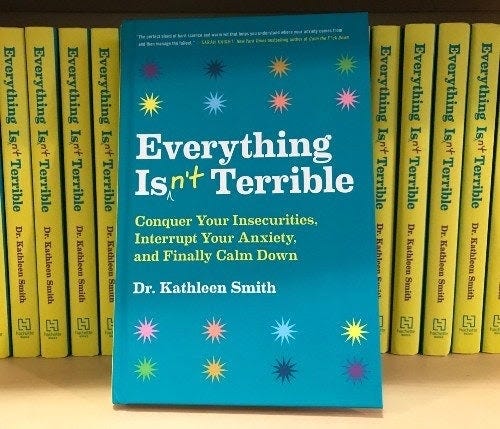Being the Captain of Your Own Ship
Relying less on relationship patterns to manage your anxiety.
In case you missed it, my first paid post went out last week, and Substack sent me an email telling me that my newsletter is now a bestseller! I wrote about burnout, and the emotional exhaustion that comes with trying to keep a relationship system in harmony. Thanks to everyone for your support. Being able to dedicate more time to this effort is a real gift. If you’re interested in signing up, you can upgrade your subscription below. Also, check out my news at the bottom for a SNEAK PEEK of my next book cover! - K
What do you think is more useful for a kid—having a parent who is very anxious about getting it right, or one who is working on being in charge of themselves?
And whom would you rather have at work—a boss who’s concerned they’re not supporting you enough, or one who’s trying to managing their anxiety in a more responsible way?
There’s no right answer to these questions. I ask them simply to help people think about how the intensity of their relating, not just their intentions, affect a relationship. So much of what we label as “trying our best” is really an attempt to manage our own distress.
I also ask these questions to remind people that it’s incredibly useful to be connected to someone who is trying to be the captain of their own ship.
What does it mean to be the captain of your own ship? I’ll give you a whole list below, but I think it means to manage your own emotional reactivity in a more responsible way. To not involve others in relationship patterns that calm things down.
How much do you involve others in how you manage anxiety? Are you always:
Worrying about them.
Trying to fix them.
Overfunctioning for them.
Getting them to overfunction for you.
Needing them to agree with you.
Needing them to calm down so you can feel calm.
Needing them to let you be in charge.
Needing to be far away from them.
Using them as a buffer.
Using them to relay messages for you.
Venting to them so you feel calmer.
Looking back on the past week, I could probably check most of these off. I asked my sick husband if he was okay a million times. I did too many things for my daughter that she could do for herself. I asked people, “Does that make sense?” too much, or I asked for someone’s opinion before I considered my own. I did these things not because I thought they were the best responses, but because they were convenient ways to calm down.
But then there are the moments where I’ve got a steadier hand on the helm. I can see the easy options, the potential patterns, in front of me, and I somehow manage to steer around my own immaturity. I can move towards someone I’d rather avoid. I can take a breath while I let someone else be in charge of themselves. These moments are rare, but over time, they add up. They give me a little more “self” than I had before.
How do you know when you’ve got a hand on the helm?
You can observe the system operating predictably.
You’re aware of what your own immaturity looks like.
You can manage your own anxiety without involving others.
You’re thinking about the best way forward.
You’re letting others be in charge of themselves.
You’re staying in contact with important people in the system.
You’re not automatically triangling other people in to manage the tension.
You’re curious about other people’s thinking (without automatically borrowing it).
Captaining your own ship doesn’t mean that you never seek support or help. Or that you always know what to do. Or that you never feel anxious. Thoughtful involvement, thoughtful dependence on other humans, is an important part of life. It’s those automatic patterns, the rigid ways we keep things calm, that get us into trouble and constrain our relationships.
Your exercise: Make a list of all the ways you tend to involve others in managing your own anxiety. Do you need people to worry about or boss around? Do you need constant reassurance that you’ve made the right choice? Are you avoiding important people because their anxiety feels so contagious? Also consider how your family involved you in how they managed anxiety. Were they very worried about you, or borrowed confidence from your accomplishments? Were they complaining to you about another person in the family, or depending on you to motivate them?
Your assignment: Think about what it would look like to be a little more in charge of yourself, day by day. What would this look like as a parent? A daughter? A leader at work? You may have not caused your distress, but what you do with it is up to you. Look for the moments where your actions can align more closely with your best thinking.
News from Kathleen
Folks, my next book has a cover! The folks at St. Martin’s Essentials did a gorgeous job, didn’t they? I couldn’t be happier with it. Pub date for TRUE TO YOU is July 9th, 2024, so stay tuned for preorder info. I’ll definitely be creating some special stuff for newsletter subscribers who preorder.
How to support my work:
Turn on paid subscriptions, to get weekly emails (rather than twice a month).
Leave a review of my book on Amazon. Reviews help people find the book.
Forward or share this newsletter to others who might be interested.
Want to read more of my writing? Get my book, Everything Isn't Terrible, from Amazon, Barnes and Noble, or your local bookstore (best option).
Want a free anxiety journal with the book? Calming Down & Growing Up: A 30 Day Anxiety Journal includes thirty daily prompts to help you reflect on and respond to your anxious behaviors. To receive a copy, just email me your receipt of Everything Isn’t Terrible.
Email me if you’re interested in Bowen theory coaching or want me to speak to your group or workplace. Follow me on Twitter, Facebook, or Instagram.
Want to learn more about Bowen theory? Visit the Bowen Center’s website to learn more about their conferences and training programs.





Yay, looking forward to the new book!
Very helpful as always. I like the addition of exercises and assignments. It gives me ways to think about my own functioning. It also helps me generate ideas about assignments that might be useful when coaching others.